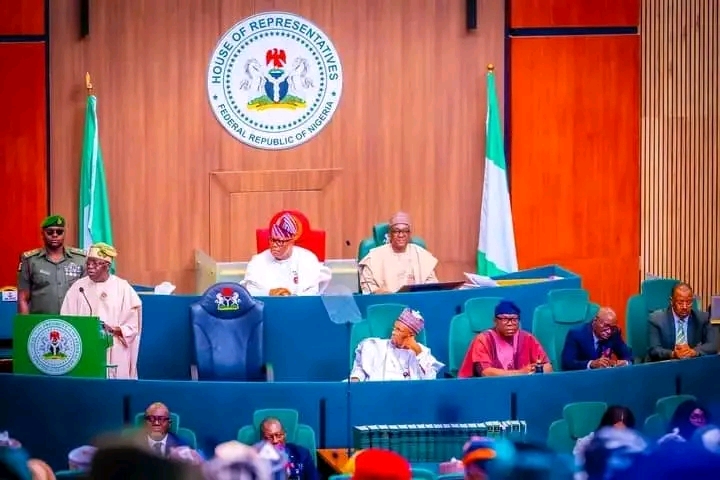President Bola Tinubu has allocated N2.48 trillion to Nigeria’s health sector in the 2025 budget, representing 5.18 per cent of the total N47.90 trillion proposed budget.
Breaking down the allocation, N402 billion is designated for health infrastructure, while N282.65 billion is earmarked for the Basic Health Care Provision Fund (BHCPF).
The News Agency of Nigeria (NAN) reports that Tinubu presented the N49.7 trillion 2025 budget on Wednesday, which he referred to as, the “Budget of Restoration: Securing Peace and Rebuilding Prosperity.”
In his address to the National Assembly, the president emphasised the need to, “rewrite Nigeria’s narrative together.”
He stated that the responsibility for changing Nigeria’s trajectory rested on the government, institutions, private enterprise, and citizens alike.
“This is not a solitary fight but a collective endeavour to restore Nigeria’s greatness,” he said.
The president further described the 2025 budget as “ambitious” and aimed at securing the country’s future.
In comparison, the 2024 federal health budget stood at N1.23 trillion out of a total expenditure of N27.5 trillion, which included N125.7 billion for the BHCPF.
In spite of the increase in the 2025 allocation, the share of the budget dedicated to health remains well below the 15 per cent target set in the 2001 Abuja Declaration.
In his budget speech, Tinubu highlighted plans to strengthen primary healthcare systems, revitalised hospitals, and ensure access to quality care for all Nigerians.
However, public health advocates have expressed concern that the 5.18 per cent allocation may not be sufficient to address the country’s major health challenges, such as maternal mortality, communicable diseases, and underfunded healthcare facilities.
Experts have called for a more substantial investment in healthcare to meet international standards and address Nigeria’s growing health needs.
The reduced share for health in the 2025 budget has raised concerns about the country’s ability to achieve universal health coverage and improve health outcomes.
This allocation continues to fuel ongoing debates about how best to prioritise healthcare in national development planning and ensure the well-being of Nigeria’s population. (NAN)


